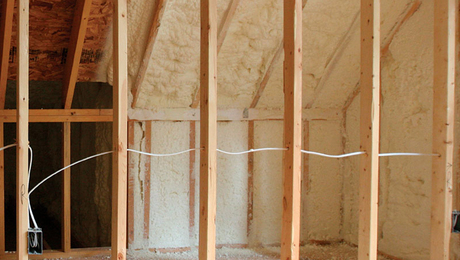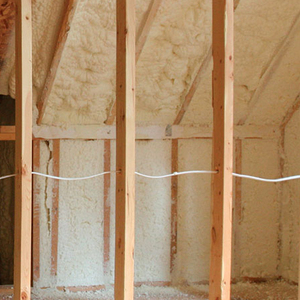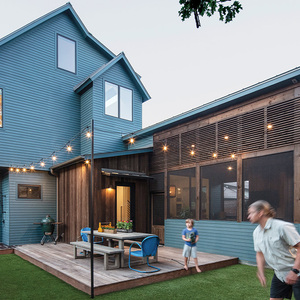I am putting in a pressure treated picket fence. I have a couple of areas that get considerably wet after substantial rains, as they are in a main drainage runoff area. I am working on re-routing the drainage, but regardless of what I do, I am certain that ground water will be an issue. What can I do about installing the posts to minimize the effects of this, especially on the cement I am sinking the posts in. I have considered quik-tubes or large plastic drain tile as post forms. Will this work? Or should I forego the cement altogether on the posts in question, and just use tamped gravel? The fence has to travel through this area, so I have to do something.
Thanks.



















Replies
Part of this answer depends on whether you are in an area that sees frost heaving.
I never set fence psots in concrete. That compounds moist of the problems you can have with them. tamp in gravel
Excellence is its own reward!
"The first rule is to keep an untroubled spirit.
The second is to look things in the face and know them for what they are."
--Marcus Aurelius
i reacently installed a small section of decorative fence and abandoned the idea of sinking into concrete and opted for gravel but i am still unsure of how well this will hold up. is the back fill supossed to be pure gravel? i used a mixture of gravel and soil becuase i felt the gravel was not going to be strong enough on its own.
heavier to stone in the bottom for drainage and adding more fines as you near the top with some clays OK near top of hole for compaction ..
Excellence is its own reward!
"The first rule is to keep an untroubled spirit.
The second is to look things in the face and know them for what they are."
--Marcus Aurelius
wow piff, a reply 19 minutes after the first post!
You don't indicate what part of the country you live in. Your question was what to do about sinking fence posts? In areas of freezing and thawing the problem is not sinking but "heaving". The frost will force the posts up each year unless they are below frost. Putting posts in concrete is not good. This assures faster rotting problems. Putting crushed rock around the post is better. Concrete around steel with the concrete coming above the ground works. The treated lumber from the lumber yard is not sufficient for wood posts. You need posts treated for that purpose. If you don't mind round posts, the local utility companies give them away because they have trouble disposing of the creasote. Those will last 50 or more years, but the diameter and round shape may not be to your liking. If you use common treated lumber in concrete expect it to last about a decade unless you live in the desert.
Richard
.40 or even .60 CCA treated posts are rated for ground contact and they will certainly last longer than 10 years. Next to the tropics, wood "melts" here in the Pacific Northwest about as quickly as anywhere and I've got treated posts I've pulled out of the ground on my place that have been in the ground over 30 years and are in A-one shape.
The rest of your post is on the money, however.Jules Quaver for President 2004
I live in Central Virginia. While our evenings are currently dipping to the low to mid 20's, I have not run into any soil difficult to get my post hole diggers through. I as well have had great luck with concrete and fence posts, and it is certainly the method of choice with all the local fence contractors. I may have sounded confusing in my initial message - when I said sinking posts, I did not mean that they were actually sinking, but rather the act of me sinking them in the ground. I have been considering either an anchor at the bottom of the hole, made from a 3 or 5 gallon bucket filled with concrete, or setting the post on a premade deck pier placed in the bottom of the hole on top of gravel, and then topping off with concrete.
Glad to hear that some others have had similar success with treated posts in concrete.
Still looking for the magical solution.
I've been using concrete imbedded fence post brackets for a while, easy to change out rotted posts, not real aesthetic looking, but you can paint them to match the fence.
Jen